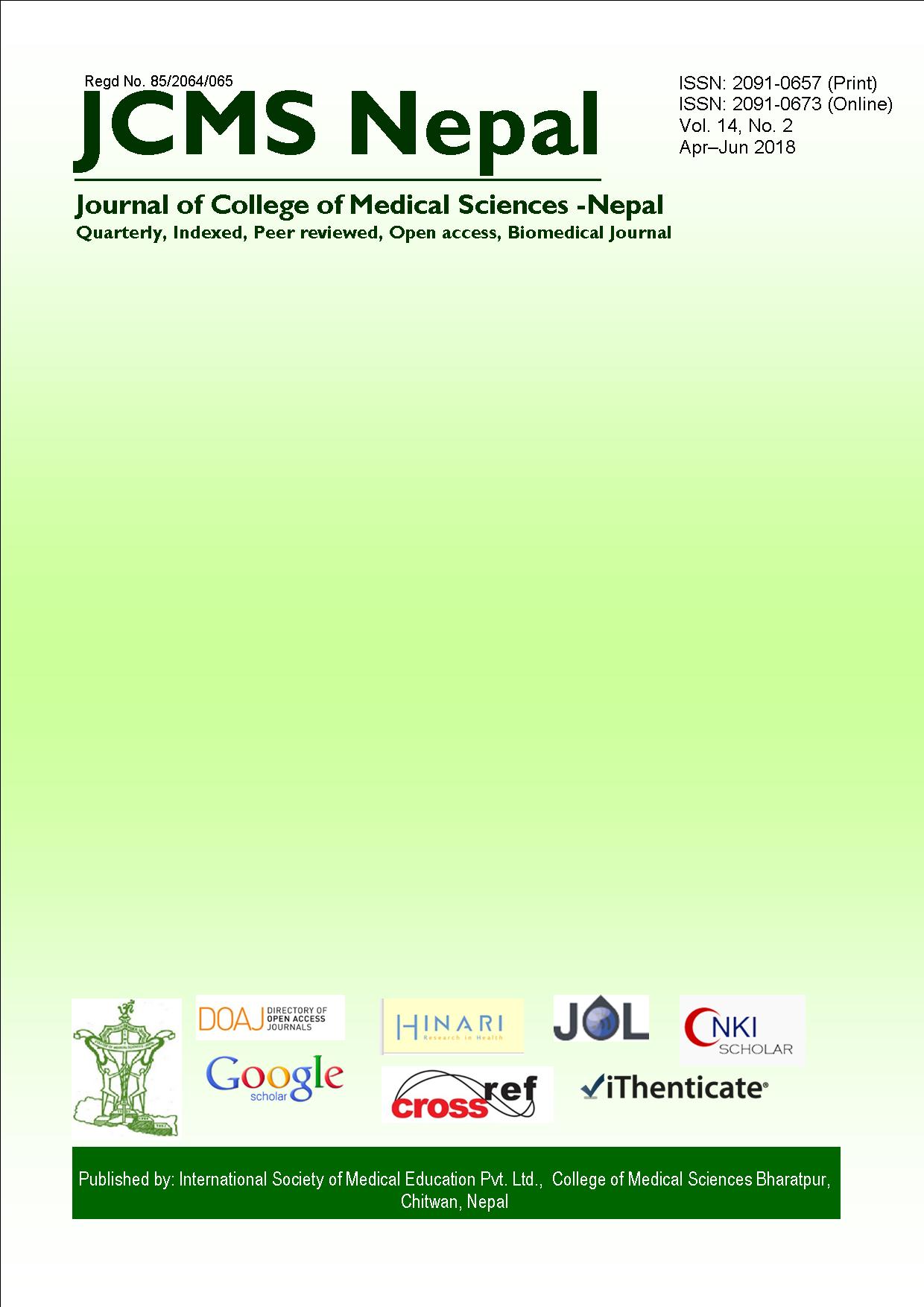Neonatal Thrombocytopenia: Its associated risk factors and outcome in NICU in a tertiary hospital in Nepal
DOI:
https://doi.org/10.3126/jcmsn.v14i2.19322Keywords:
Neonate, NICU, Thrombocytopenia.Abstract
ABSTRACT
Background: Thrombocytopenia is a frequently encountered hematological abnormality in Neonatal Intensive Care Unit (NICU). There are various maternal and neonatal risk factors associated and the incidence varies greatly depending upon the population studies. This study was performed on neonates admitted in Bharatpur Hospital NICU.
Materials & Methods: In this retrospective study, 412 neonates who were admitted in NICU from November 2016 to October 2017 were included in the study. Frequency of thrombocytopenia was determined along with associated maternal and neonatal risk factors. Maternal risk factors like Pregnancy induced hypertension (PIH), Diabetes, Eclampsia, drug use and neonatal risk factors like sepsis, asphyxia, intrauterine growth retardation (IUGR), prematurity were analyzed. Requirement of platelet transfusion and the outcome were also evaluated.
Results: Of the 412 neonates included, 74 had thrombocytopenia which comprised approximately 18% neonates admitted in NICU. Early onset thrombocytopenia occurring within 72 hrs comprised 91.8% while late onset thrombocytopenia occurring after 72 hrs comprised 8.2% of total thrombocytopenia. 58.1% (43) were mild , 29.7% (22) moderate and 12.2% (9) severe thrombocytopenia. The major neonatal risk factors were sepsis, asphyxia, IUGR and prematurity while gestational diabetes and PIH were maternal risk factors contributing to neonatal thrombocytopenia. Only 4.05% received platelet transfusion. 77.03% of the neonates recovered and were discharged while 12.16% neonates were referred to other centres and 5.40% neonates died.
Conclusion: Neonatal thrombocytopenia accounted for 18% of neonates which were admitted in the NICU. Significant neonatal risk factors were asphyxia and sepsis and maternal risk factors were PIH and diabetes. Majority did not require platelet transfusion and outcome was also good.
Downloads
Downloads
Additional Files
Published
How to Cite
Issue
Section
License
This license enables reusers to copy and distribute the material in any medium or format in unadapted form only, for noncommercial purposes only, and only so long as attribution is given to the creator.




